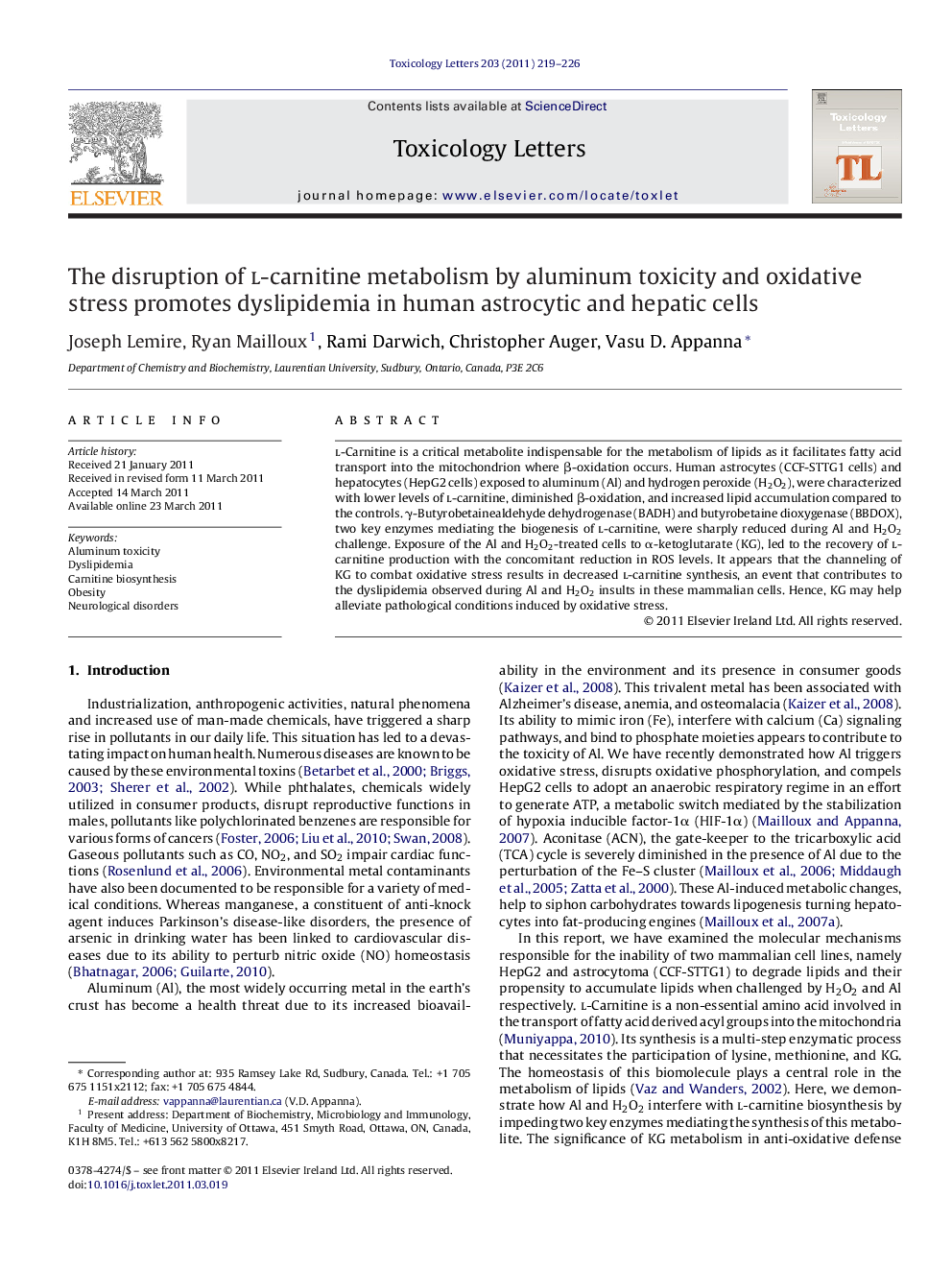| Article ID | Journal | Published Year | Pages | File Type |
|---|---|---|---|---|
| 2599997 | Toxicology Letters | 2011 | 8 Pages |
l-Carnitine is a critical metabolite indispensable for the metabolism of lipids as it facilitates fatty acid transport into the mitochondrion where β-oxidation occurs. Human astrocytes (CCF-STTG1 cells) and hepatocytes (HepG2 cells) exposed to aluminum (Al) and hydrogen peroxide (H2O2), were characterized with lower levels of l-carnitine, diminished β-oxidation, and increased lipid accumulation compared to the controls. γ-Butyrobetainealdehyde dehydrogenase (BADH) and butyrobetaine dioxygenase (BBDOX), two key enzymes mediating the biogenesis of l-carnitine, were sharply reduced during Al and H2O2 challenge. Exposure of the Al and H2O2-treated cells to α-ketoglutarate (KG), led to the recovery of l-carnitine production with the concomitant reduction in ROS levels. It appears that the channeling of KG to combat oxidative stress results in decreased l-carnitine synthesis, an event that contributes to the dyslipidemia observed during Al and H2O2 insults in these mammalian cells. Hence, KG may help alleviate pathological conditions induced by oxidative stress.
